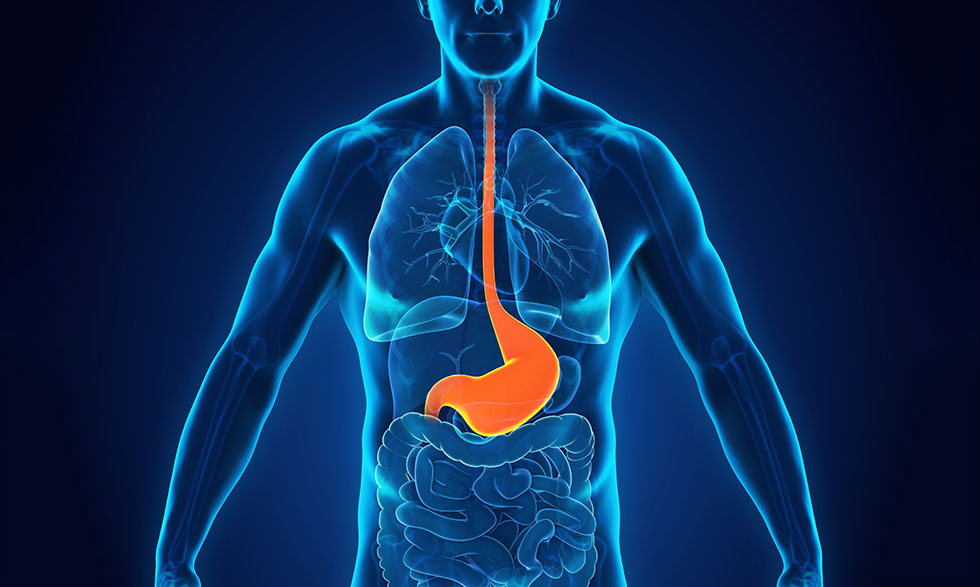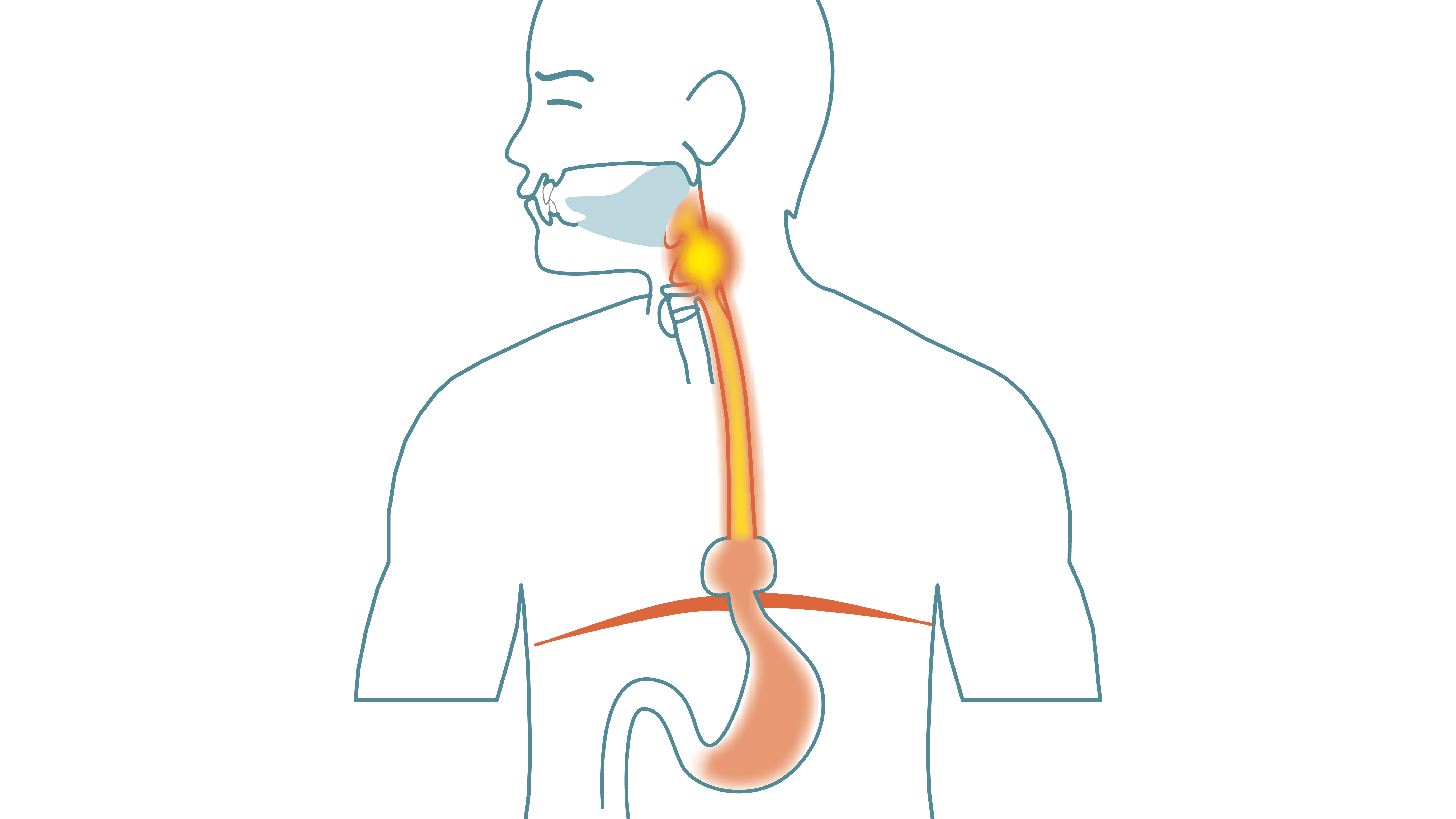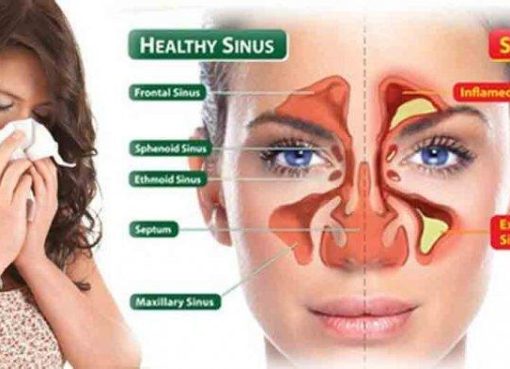Acid Reflux Surgery: When Is It Necessary and What to Expect

Acid reflux, also known as gastroesophageal reflux disease (GERD), is a common condition characterized by the backward flow of stomach acid into the esophagus. While occasional acid reflux is normal, chronic or severe cases can lead to serious health complications. In this article, we explore the dangers of reflux, its causes, symptoms, and treatment options.
The Hazards of Acid Reflux:

Esophageal Damage:
Prolonged exposure to stomach acid can irritate and inflame the lining of the esophagus, leading to a condition known as esophagitis. Over time, untreated esophagitis can cause erosions, ulcers, and strictures (narrowing of the esophagus), increasing the risk of complications such as bleeding and difficulty swallowing.
Barrett’s Esophagus:
Chronic acid reflux can result in changes to the cells lining the lower esophagus, a condition known as Barrett’s esophagus. Barrett’s esophagus is a precancerous condition that significantly increases the risk of developing esophageal cancer, a potentially life-threatening disease if left untreated.
Respiratory Problems:
Acid reflux can trigger respiratory symptoms such as coughing, wheezing, and asthma exacerbations, particularly when stomach acid reaches the throat and lungs. Chronic aspiration of stomach acid into the respiratory tract can lead to inflammation, irritation, and respiratory complications.
Dental Erosion:
The acidic nature of stomach acid can erode tooth enamel over time, leading to dental problems such as tooth sensitivity, decay, and enamel erosion. Individuals with chronic acid reflux may experience dental erosion, especially on the back teeth, due to repeated exposure to stomach acid.
Sleep Disturbances:
Acid reflux can disrupt sleep patterns and contribute to sleep disturbances such as nighttime heartburn, regurgitation, and discomfort. Sleep-related symptoms of acid reflux can impair sleep quality, leading to daytime fatigue, irritability, and impaired daytime functioning.

Causes and Risk Factors:
- Hiatal Hernia: A hiatal hernia occurs when the upper part of the stomach protrudes through the diaphragm into the chest cavity, increasing the risk of reflux.
- Dietary Factors: Consuming acidic, spicy, or fatty foods, as well as caffeine, alcohol, and carbonated beverages, can trigger or exacerbate acid reflux symptoms.
- Obesity: Excess body weight and abdominal fat increase pressure on the stomach and lower esophageal sphincter (LES), contributing to acid reflux.
- Smoking: Tobacco smoke can weaken the LES and impair esophageal motility, leading to increased susceptibility to acid reflux.
- Pregnancy: Hormonal changes and increased abdominal pressure during pregnancy can promote reflux symptoms in pregnant women.
Treatment Options:
- Lifestyle Modifications: Making dietary changes, such as avoiding trigger foods, eating smaller meals, and maintaining a healthy weight, can help alleviate acid reflux symptoms.
- Medications: Over-the-counter and prescription medications, including antacids, H2-receptor antagonists, and proton pump inhibitors (PPIs), can reduce stomach acid production and alleviate symptoms of reflux.
- Surgical Intervention: In severe cases of reflux that do not respond to conservative treatment, surgical procedures such as fundoplication may be recommended to reinforce the lower esophageal sphincter and prevent reflux.
- Behavioral Therapy: Cognitive-behavioral therapy (CBT) and relaxation techniques can help manage stress and anxiety, which can exacerbate reflux symptoms in some individuals.
- Monitoring and Follow-up: Regular monitoring and follow-up with a healthcare provider are essential for individuals with acid reflux to assess treatment efficacy, monitor for complications, and adjust treatment plans as needed.
Acid reflux poses significant dangers to the esophagus, respiratory tract, dental health, sleep quality, and overall well-being. Understanding the risks associated with acid reflux, identifying potential causes and risk factors, and implementing appropriate treatment strategies are essential for effectively managing this common but potentially serious condition. By adopting lifestyle modifications, seeking medical guidance, and adhering to treatment recommendations, individuals with reflux can minimize the risks of complications and improve their quality of life.
Preventing Acid Reflux: Effective Strategies for Maintaining Digestive Health
Acid reflux, a condition characterized by the backward flow of stomach acid into the esophagus, can cause discomfort and potentially lead to serious health complications if left untreated. Fortunately, there are several preventive measures individuals can take to reduce the risk of acid reflux and maintain digestive health. In this article, we explore effective strategies for preventing reflux and promoting overall well-being.

1. Maintain a Healthy Diet:
- Avoid Trigger Foods: Identify and avoid foods that nanastoto trigger acid reflux symptoms, such as spicy, acidic, fatty, and fried foods. Common trigger foods include citrus fruits, tomatoes, chocolate, caffeine, alcohol, and carbonated beverages.
- Eat Smaller Meals: Opt for smaller, more frequent meals rather than large, heavy meals, which can increase pressure on the stomach and contribute to reflux. Eating slowly and chewing food thoroughly can also aid digestion and reduce the risk of reflux.
- Choose Low-Acid Options: Incorporate low-acid foods into your diet, such as lean proteins, whole grains, fruits with low acidity (e.g., bananas, apples), vegetables, and non-citrus fruits. High-fiber foods can help promote digestive health and reduce reflux symptoms.
2. Maintain a Healthy Weight:
Manage Obesity: Excess body weight, particularly abdominal fat, can increase pressure on the stomach and lower esophageal sphincter (LES), leading to acid reflux. Adopting a balanced diet, engaging in regular physical activity, and maintaining a healthy weight can reduce the risk of reflux.
3. Practice Good Eating Habits:
- Avoid Eating Before Bed: Allow at least two to three hours between your last meal and bedtime to allow for digestion and prevent nighttime reflux symptoms. Lying down shortly after eating can exacerbate reflux due to gravity.
- Use Proper Posture: Maintain good posture while eating and avoid slouching or lying down immediately after meals. Sitting upright helps promote proper digestion and reduces the risk of acid reflux.
4. Make Lifestyle Modifications:
- Quit Smoking: Smoking can weaken the lower esophageal sphincter (LES) and impair esophageal motility, increasing the risk of acid reflux. Quitting smoking can improve digestive health and reduce reflux symptoms.
- Limit Alcohol and Caffeine: Alcohol and caffeine can relax the LES and stimulate stomach acid production, exacerbating acid reflux symptoms. Limiting or avoiding alcohol and caffeine consumption can help prevent reflux.
5. Manage Stress:
Practice Stress-Reduction Techniques: Stress and anxiety can exacerbate reflux symptoms by affecting digestive function and increasing gastric acid secretion. Practice stress-reduction techniques such as deep breathing, meditation, yoga, and progressive muscle relaxation to promote relaxation and digestive health.
6. Elevate the Head of the Bed:
Use Bed Elevation: Elevating the head of the bed by six to eight inches can help prevent nighttime acid reflux symptoms by reducing the likelihood of stomach acid flowing into the esophagus while lying down.
7. Seek Medical Advice:
Consult a Healthcare Provider: If you experience frequent or severe reflux symptoms despite making lifestyle modifications, consult a healthcare provider for evaluation and treatment. Medications, such as antacids, H2-receptor antagonists, and proton pump inhibitors (PPIs), may be prescribed to manage reflux symptoms and prevent complications.
Conclusion:
Preventing acid reflux involves adopting healthy eating habits, maintaining a healthy weight, practicing good lifestyle habits, managing stress, and seeking medical advice when needed. By implementing these preventive measures, individuals can reduce the risk of acid reflux, promote digestive health, and enhance overall well-being. A proactive approach to preventing reflux can lead to improved quality of life and long-term digestive health.
Read More Article About “Mindfulness Meditation for Beginners: Tips and Guidance 2024“




Leave a Comment